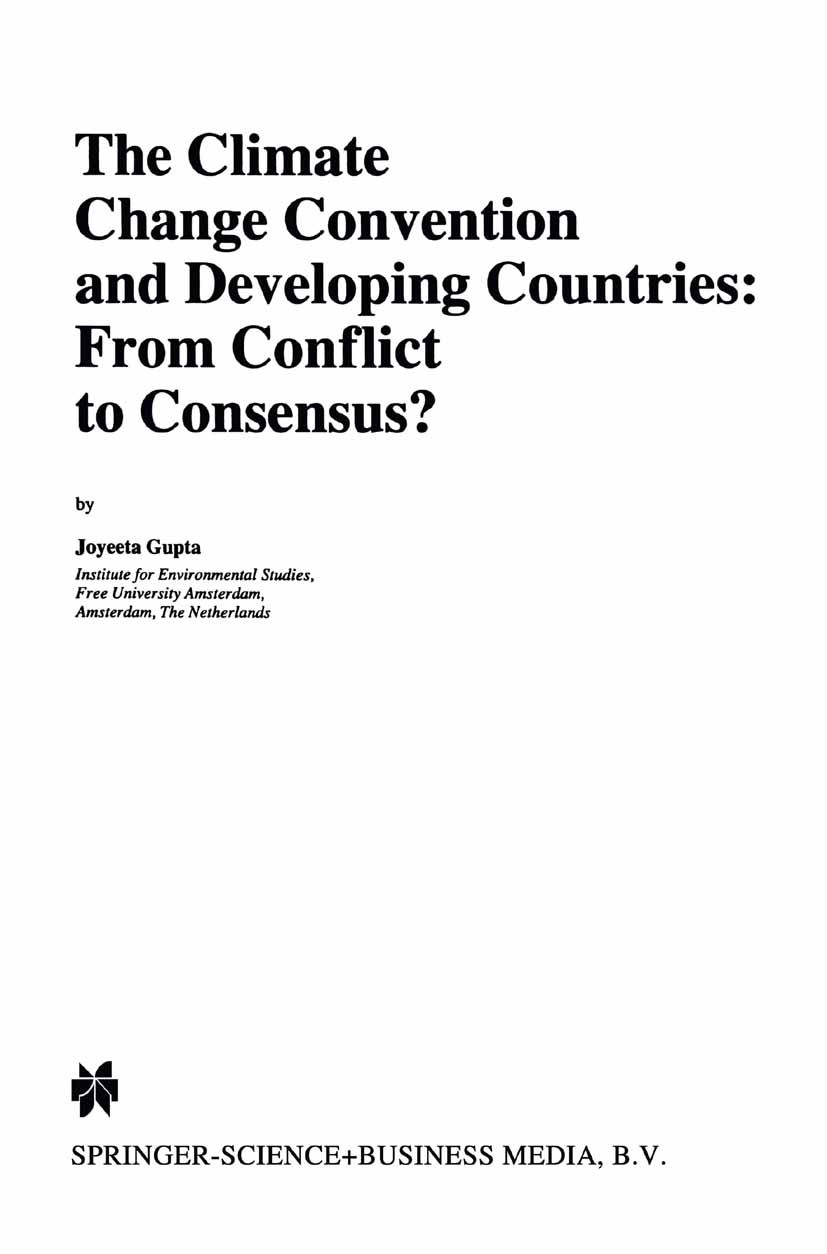| 书目名称 | The Climate Change Convention and Developing Countries |
| 副标题 | From Conflict to Con |
| 编辑 | Joyeeta Gupta |
| 视频video | http://file.papertrans.cn/907/906256/906256.mp4 |
| 丛书名称 | Environment & Policy |
| 图书封面 |  |
| 描述 | The climate change problem can only be effectively dealt with if global anthropogenic greenhouse gas (GHG) emissions can be reduced substantially. Since the emission of such gases is closely related to the economic growth of countries, a critical problem to be addressed by the United Nations Framework Convention on Climate Change (FCCC) is: how will the permissible emission levels be shared between industrialised (ICs) and developing countries (DCs)? The thesis of this book is that the long-term effectiveness of the FCCC runs the risk of a horizontal negotiation deadlock between countries and the risk of vertical standstill within countries if there is little domestic support for the domestic implementation of measures being announced in international negotiations. The research question is: Can one observe trends towards horizontal deadlock and vertical standstill and if yes, how can the treaty design be improved so as to avoid such potential future bottlenecks? The research focuses on the perspectives of domestic actors on the climate convention and related issues in four developing countries: India, Indonesia, Kenya and Brazil. The following key findings emerge from the research: |
| 出版日期 | Book 1997 |
| 关键词 | Developing Countries; Greenhouse gas; climate change; emissions; negotiations |
| 版次 | 1 |
| doi | https://doi.org/10.1007/978-94-015-8925-3 |
| isbn_softcover | 978-90-481-4858-5 |
| isbn_ebook | 978-94-015-8925-3Series ISSN 1383-5130 Series E-ISSN 2215-0110 |
| issn_series | 1383-5130 |
| copyright | Springer Science+Business Media Dordrecht 1997 |
 |Archiver|手机版|小黑屋|
派博传思国际
( 京公网安备110108008328)
GMT+8, 2026-2-8 15:30
|Archiver|手机版|小黑屋|
派博传思国际
( 京公网安备110108008328)
GMT+8, 2026-2-8 15:30


